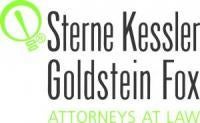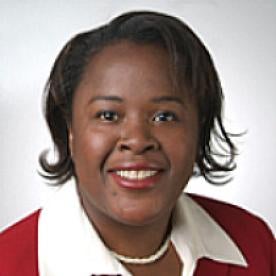On September 6, 2011, the Senate scheduled a vote on the House version of the Leahy-Smith America Invents Act (H.R. 1249), which promises to be one of the final steps toward enactment of major changes to the U.S. patent system. Many provisions of the Act will take effect a year or more after enactment including, e.g., a procedure for post-grant review proceedings before the U.S. Patent and Trademark Office (1 year after date of enactment) and a change to a first inventor to file system (18 months after date of enactment). However, a number of changes will take effect immediately upon, or soon after, enactment. A summary of these changes follows:
USPTO Patent Fees
- A 75% reduction in fees for a new category of patent applicants termed “micro entities,” defined under new section 35 U.S.C. § 123, will take effect upon enactment. See Sections 10(b) and (i)(1) of H.R. 1249.
- A 15% surcharge will apply to general statutory fees and maintenance fees under 35 U.S.C. §§ 41(a), (b), (d)(1), and 132(b) and will take effect 10 days after enactment. See Section 11(i) of H.R. 1249.
- An option for “Prioritized Examination,” which has an associated $4800 fee (reduced by 50% for small entities) in addition to general statutory fees, will take effect 10 days after enactment. See Section 11(h) of H.R. 1249.
- An additional $400 fee (reduced by 50% for small entities) will apply to all applications not electronically filed and will take effect 60 days after enactment. See Section 10(h) of H.R. 1249.
Proceedings Before the USPTO
- A limitation on the issuance of claims directed to or encompassing a human organism will apply to any application pending on, or filed on or after, enactment. This limitation, however, does not affect the validity of any patent issued prior to enactment. See Section 33 of H.R. 1249.
- Any tax strategies for reducing, avoiding, or deferring tax liability, whether known or unknown at the time of invention or the filing of a patent application, will be deemed in the prior art with respect to any patent application pending on, or filed on or after, enactment or to any patent issued on or after enactment. The provision expressly excludes tax preparation inventions. See Section 14 of H.R. 1249.
- The date of receipt of FDA permission for commercial marketing or use of a product, which is based on the submission of an application for patent term extension under 35 U.S.C. § 156, will be considered the next business day if transmitted after 4:30 PM Eastern Time or on a non-business day. This change applies to any term extension application pending on or filed after enactment. See Section 37 of H.R. 1249.
- A mandate for the USPTO to work with and support intellectual property law associations in the establishment of pro bono programs to assist financially under-resourced independent inventors and small businesses will take effect upon enactment. See Section 32 of H.R. 1249.
Reexaminations Before the USPTO
- The standard for the Director to grant an inter partes reexamination will change on the date of enactment from the current standard requiring a requestor to show a “substantial new question of patentability” to a new standard requiring a requestor to show “that there is a reasonable likelihood that the requestor would prevail with respect to at least 1 of the claims challenged in the request.” See Sections 6(c)(3)(A) and (B) of H.R. 1249.
- Review of ex parte reexamination decisions will be limited to the Court of Appeals for the Federal Circuit upon the date of enactment, removing the option for review before the United States District Court for the District of Columbia under 35 U.S.C. § 145. This change applies to any reexamination pending on, or brought on or after, the date of enactment. See Sections 6(h)(2)(A) and (B) of H.R. 1249.
Litigation Before the Courts
- Failure to disclose best mode under 35 U.S.C. § 282 will no longer be available as a defense to actions commenced on or after enactment. See Sections 15(a) and (c) of H.R. 1249.
- A revised defense to infringement under 35 U.S.C. § 273 based on prior commercial use applies to any patent issued on or after enactment. See Sections 5 (a) and (c) of H.R. 1249.
- Venue for any action commenced on or after enactment that relies on 35 U.S.C. §§ 32, 145, 146, 154(b)(4)(A), or 293 or 15 U.S.C. § 1071(b)(4) will change to the United States District Court for the Eastern District of Virginia from the United States District Court for the District of Columbia. See Section 9 of H.R. 1249.
- Joinder of unrelated accused infringers will be limited in actions commenced on or after enactment under new section 35 U.S.C. § 299. SeeSection 19(d) of H.R. 1249.
- Changes to the false marking provisions of 35 U.S.C. § 287 will allow for virtual marking and of 35 U.S.C. § 292 will limit standing to the U.S. (for civil penalty) or a person who has suffered a competitive injury based on false marking (for civil damages) and remove as false marking the later expiration of a patent on a previously-marked product. These changes apply to any action pending on, or commenced on or after, enactment. See Sections 16(a) and (b) of H.R. 1249.





 i
i


